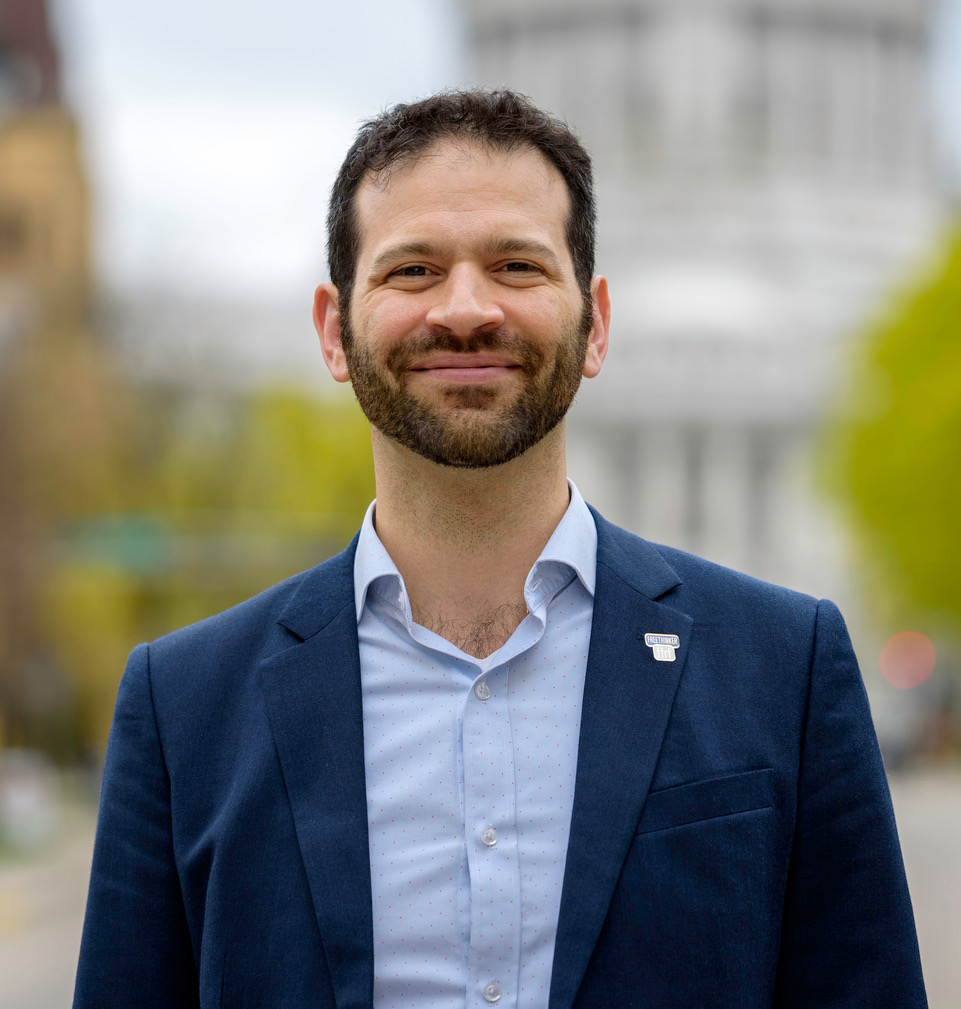 What’s your favorite holiday classic? “Meet Me in St. Louis”? “The Strike” (aka the Festivus episode) on “Seinfeld”? “A Christmas Story”?
What’s your favorite holiday classic? “Meet Me in St. Louis”? “The Strike” (aka the Festivus episode) on “Seinfeld”? “A Christmas Story”?
For me, it’s definitely “Scrooged.” The 1988 film with Bill Murray is a retelling of the Dickens’ classic “A Christmas Carol.” In that spirit and a nod to Christmas past, present and future, my year-end review will focus on where we were, where we are and where we are going to uphold our secular values through federal governmental affairs.
Building close relationships with members of Congress
In the past, we had solid direct relationships with members of Congress on judicial nominations and secular invocations. Now, we’ve greatly expanded the depth and breadth of these relationships. This year, we’ve hosted three members of the Congressional Freethought Caucus on FFRF’s TV show “Freethought Matters,” Reps. Jared Huffman, Jamie Raskin and Mark Pocan, that has given us an in-depth look at how these members are working with us, how their secular values shape their decision-making, and what they are up against in Congress.
At the FFRF convention in October, Rep. Pocan made headlines by declaring that he is part of the 26 percent “of us in this country who don’t follow a specific religion.” Pocan’s remarks were significant because the Congressional Freethought Caucus represents the range of the Freethought Community: Rep. Huffman, the Caucus co-chair, who does not believe in a higher power, and Rep. Pocan, who does not identify with a particular religion. Next year, we hope to feature more members of the Caucus on the show and speaking at our convention. We’re also working to invite more members of Congress join the Caucus to advance our secular legislative agenda and make secularism a higher priority.
Tangible legislative victories
Over the past several years, we have been able to stop the repeal of the Johnson Amendment, which would have allowed churches to become tax-deductible political money-laundering operations. FFRF’s legal team successfully sued the Trump administration on the same day he tried to sign an executive order undoing that rule.
This year, one of our key legislative objectives is to make sure all Americans have access to secular mutual-support recovery options, a constitutional right. Religious 12-step programs such as Alcoholics Anonymous are widely available and are often a default treatment option. We are changing that. We want to expand recovery options for all Americans. Pending passage, we got an insertion into the federal budget that empowers federal agencies to work with secular mutual-support recovery providers. Getting a budget insertion is extremely difficult. It takes a lot of shoe leather campaigning. We’ve got excellent partners within the secular community, such as the American Humanist Association, Center for Inquiry and the Secular Coalition for America, plus secular recovery providers like SMART Recovery and LifeRing, to help us with this. Next year, we hope to have multiple insertions across numerous appropriation bills.
We’re also working with our allies on the Hill to see how we can use the appropriations process to send a strong signal that religious exemptions and a Christian Nationalist agenda will not be tolerated.
Plus, look for hearings that will shed light on the Trump administration’s actions to advance Christian Nationalism throughout the federal government and to make religious exemptions a de facto policy of your government.
Stronger together
We can’t stand up to Christian Nationalists on our own, and you can’t have too many friends in D.C. We’ve always had solid working relationships with numerous secular organizations. Continuing in that tradition, we’ve greatly expanded our network of allied partners in D.C. through our legislative efforts such as the Do No Harm Act, the No BAN Act and the Scientific Integrity Act.
The Do No Harm Act bans religious exemptions to laws guaranteeing fundamental civil and legal rights. We have been working with the ACLU, Interfaith Alliance, Human Rights Campaign, the Leadership Conference on Civil and Human Rights, and Americans United for Separation of Church and State. Through our direct lobbying efforts, we’ve added 33 new co-sponsors. Our goal is a hearing and legislative action next year.
To advance the No BAN Act, which bars the use of religion or nonreligion as restrictions on immigration, we’ve been working with the National Iranian American Council, National Immigration Law Center and the ACLU, among others. With our collective efforts, we’ve added 64 new co-sponsors to the No BAN Act.
The Scientific Integrity Act helps to prevent political meddling in public scientific research. The bill has 230 bipartisan co-sponsors and has passed out of committee. We’re working with the Union of Concerned Scientists to get the bill to the House floor by Christmas next year.
Building our grassroots support
I enjoyed meeting so many of you at the FFRF convention this year. FFRF has 30,000-plus members. Freethinkers are currently 26 percent of the adult U.S. population, and there is tremendous opportunity for our membership to reflect the growing diversity of this freethought population. There are now more freethinkers than evangelical Protestants or Catholics. Can you imagine what we could do together if we had the same political clout as Catholics? One of the best things you can do to help us in D.C. is to help grow FFRF nationally.
As we look to 2020, there are two lessons I always take away from “Scrooged” or “A Christmas Carol” (Mickey, Muppet, Dickens, etc.). One is light and the other is dark. The light one is that we can write a new future. The dark lesson is that folks who act without reason, virtue and compassion will face a reckoning. It may take a while, but it will happen. My holiday wish is that we can embrace a bright secular future together.
See you next year!
![]()
Mark Dann
Director of Governmental Affairs
Freedom From Religion Foundation, Inc.

